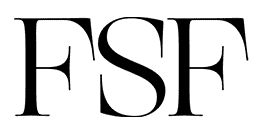Equity Initiative
The FSF Equity Statement
Industry Impact
The Fashion Scholarship Fund is committed to expanding opportunities in the fashion industry and celebrating the talent, contributions, and life experiences of Scholars from a variety of backgrounds. We foster change in the industry through partnerships, working closely with the industry’s foremost brands, businesses, and visionaries to create initiatives that build impact. We serve as a resource to our partners and other businesses, providing advice on the development of strategies that expand access, equity, and support for the next generation of fashion leaders.
We prioritize creating accessible pathways for talented Scholars from all backgrounds and experiences. Our affiliated member schools include a network of HBCUs, HSIs, and institutions that focus on historically marginalized communities. We are continually building meaningful relationships with education and industry leaders committed to improving the experiences of Scholars and early-career professionals.
Organizational Impact
We are committed to understanding and improving a sense of inclusion and empowerment for our Scholars, staff, and volunteers. We are committed to intentionally engaging individuals of diverse backgrounds and experiences in all aspects of our work and decision-making as we carry this work forward. We are committed to fostering partnerships with organizations that share our values and serve the communities we support.
Pre-Program Impact
We are committed to ensuring that applicants are provided with the tools and guidance they need to successfully compete for our annual FSF Case Study Scholarship Competition. With resources such as FSF University (a free self-guided digital learning platform that offers step-by-step guidance and feedback on the case study process), mentorship, guides for each discipline, and after-hours sessions, applicants are well supported as they prepare their submissions. We also invite applicants to participate in our bi-annual Talent Acquisition Event, which connects students with leading industry partners and provides additional opportunities to engage, learn, and showcase their talent.
Integrity Impact
All scholarship submissions undergo a rigorous blind-judging process designed to ensure integrity, equity, and impartiality. Evaluations are conducted solely on the quality and strength of the work submitted, with all personal identifiers removed. The FSF Case Study Competition judges are encouraged to participate in a bias training. This process upholds the highest standards of fairness and guarantees that awards are granted strictly on merit.
Program Impact
The FSF Bridge Fund Grant: With our Bridge Fund Grant, we are committed to removing financial barriers, enabling Scholars to pursue career development opportunities that might otherwise be inaccessible.
To explore partnering with the FSF to advance corporate social responsibility goals, contact development@fashionscholarshipfund.org.





